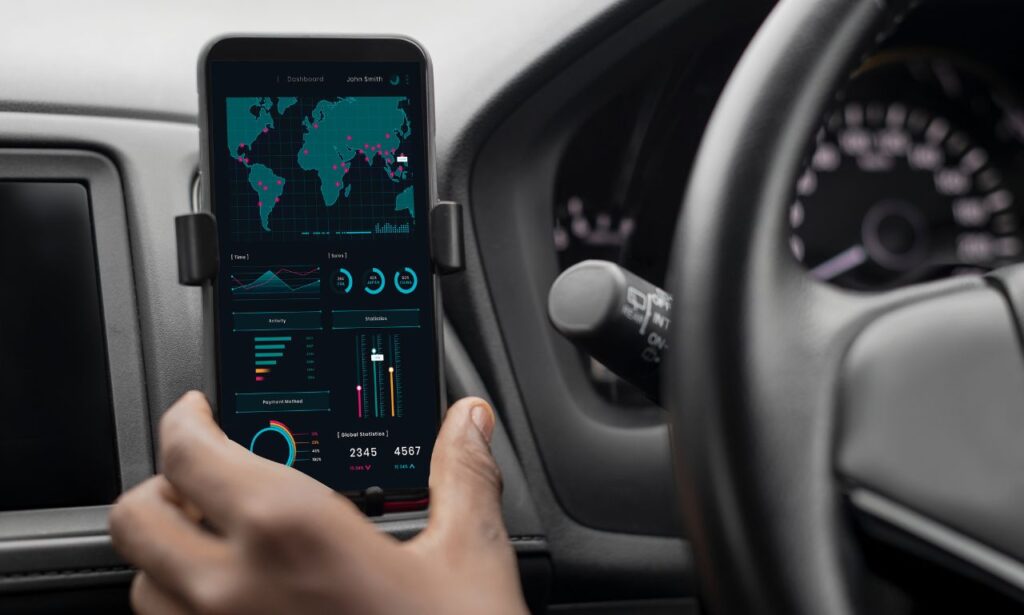The Toyota 4Runner has long been recognized as a reliable off-road-capable midsize SUV. Whether you’re navigating rough terrain or commuting through city traffic, 4Runner mpg plays a crucial role in deciding whether this vehicle aligns with your budget and driving lifestyle. With the release of the sixth-generation 2025 4Runner, fuel economy remains one of the top considerations, especially as Toyota introduces hybrid technology to the model lineup for the first time.
While the 4Runner is not typically praised for outstanding fuel efficiency, it now performs more competitively thanks to drivetrain upgrades and hybrid enhancements. This article will explore all the ins and outs of 4Runner mpg, including EPA ratings, real-world fuel economy, hybrid performance, and efficiency tips.
4Runner MPG Ratings: City, Highway, and Combined
According to official EPA ratings and Toyota’s specifications, the 2025 4Runner mpg figures vary based on trim and powertrain:
-
Gas-powered 4WD models: 19 mpg city / 25 mpg highway / 21 mpg combined
-
Gas-powered 2WD models: 20 mpg city / 26 mpg highway / 22 mpg combined
-
Hybrid (i-FORCE MAX): 23 mpg city / 24 mpg highway / 23 mpg combined
These numbers place the hybrid 4Runner slightly ahead in urban driving conditions while offering similar efficiency to gasoline models on the highway. Notably, the hybrid is expected to provide more torque and power alongside better fuel economy, making it a practical choice for both daily commuting and weekend adventures.
City Driving: 4Runner MPG Performance in Stop-and-Go Traffic
City mpg is where the hybrid version of the 4Runner shines. The addition of electric motors allows it to operate without using the engine during low-speed driving, reducing fuel consumption in congested conditions. In contrast, traditional gas-powered models rely solely on the combustion engine, resulting in lower city mpg scores.
-
Gasoline 4WD models: ~19 mpg in the city
-
Hybrid models: Up to 23 mpg in the city
For drivers frequently commuting in dense traffic or urban environments, the hybrid model can offer noticeable savings at the pump over time.
Highway Efficiency: 4Runner MPG at Cruising Speeds
On the highway, 4Runner mpg is more competitive across all variants. While hybrids perform slightly better in the city, gasoline engines tend to match or even slightly exceed hybrid efficiency at constant highway speeds.
-
Gas 2WD models: Up to 26 mpg on highways
-
Gas 4WD models: Around 25 mpg
-
Hybrids: Rated at 24 mpg highway, but sometimes slightly lower in real-world testing due to added battery weight
The aerodynamic design of the 2025 model, along with new 8-speed and 10-speed automatic transmissions, contribute to improved highway mileage compared to older generations.
Combined Ratings: Balanced 4Runner MPG
The combined mpg for the 4Runner is calculated as a mix of 55% city and 45% highway driving. Toyota claims:
-
Gas models: 21–22 mpg combined
-
Hybrid models: 23 mpg combined
These figures are relatively modest compared to crossover SUVs but respectable among off-road-capable, body-on-frame SUVs. With its rugged construction and go-anywhere capabilities, some fuel tradeoff is expected.
Real-World 4Runner MPG: What Drivers Report
Despite what’s printed on the window sticker, real-world 4Runner mpg often fluctuates based on how, where, and when you drive. Forum users and early reviewers of the 2025 4Runner have shared mixed feedback:
-
City driving in hybrids shows impressive efficiency, often close to or even above the rated 23 mpg.
-
Gas models in stop-and-go traffic tend to drop closer to 17–18 mpg, especially during break-in periods or with aggressive driving.
-
Highway efficiency is more stable across both models, ranging from 21 to 25 mpg depending on speed, terrain, and cargo load.
One owner shared, “My TRD Off-Road got 17.5 mpg over a month of mixed driving. Once I switched to Eco mode, it crept up to just over 19 mpg.”
Hybrid vs Gas: 4Runner MPG Face-Off
Pros of 4Runner Hybrid MPG:
-
Better city mileage
-
Quieter low-speed operation
-
Lower emissions
-
More torque for towing and off-road climbing
Cons:
-
Heavier curb weight
-
Slightly lower highway mpg than expected
-
Higher upfront cost
Hybrid models perform best in stop-and-go or urban environments. For primarily highway or rural drivers, traditional gas models may offer similar mpg with lower initial cost.
What Affects 4Runner in Real Life?
Several factors influence how close your 4Runner comes to its EPA mpg rating:
-
Driving habits: Rapid acceleration and heavy braking decrease fuel efficiency.
-
Load and weight: Roof racks, off-road gear, or extra passengers can lower mpg.
-
Terrain: Hilly or unpaved roads require more fuel than flat, smooth highways.
-
Tire type and pressure: Off-road tires and underinflation both reduce efficiency.
-
Weather: Extreme cold or running AC continuously impacts fuel economy.
Drivers can improve mpg by adopting smoother driving habits, reducing unnecessary weight, and keeping their vehicles well-maintained.
Fuel Tank Size and Driving Range
The 2025 4Runner comes with a 21.1-gallon fuel tank, offering a decent driving range:
-
Gas models: 420–460 miles (combined driving)
-
Hybrid models: Around 485 miles on a full tank
Actual range depends on speed, terrain, load, and external conditions. Highway-focused drivers often report getting closer to 500 miles between refueling stops in hybrid trims.
Fuel Economy Tips: Maximizing Your 4Runner
To get the best 4Runner mpg, consider the following tips:
-
Use Eco Mode: Standard on most trims, this mode adjusts throttle response for fuel savings.
-
Reduce Load: Keep roof cargo minimal and remove unused racks or carriers.
-
Maintain Tire Pressure: Underinflated tires reduce mpg by up to 3%.
-
Drive Smoothly: Avoid hard accelerations, and coast to a stop when possible.
-
Limit Idling: Turn off the engine during long waits instead of idling.
-
Regular Maintenance: Clean air filters, oil changes, and fuel system checks help retain optimal mpg.
Conclusion
The Toyota 4Runner has never been marketed as an economy SUV—but the new 2025 model makes meaningful strides in efficiency. While gas-powered versions hover in the low 20s mpg-wise, the hybrid variant adds several miles per gallon in city conditions, along with improved power and lower emissions.







